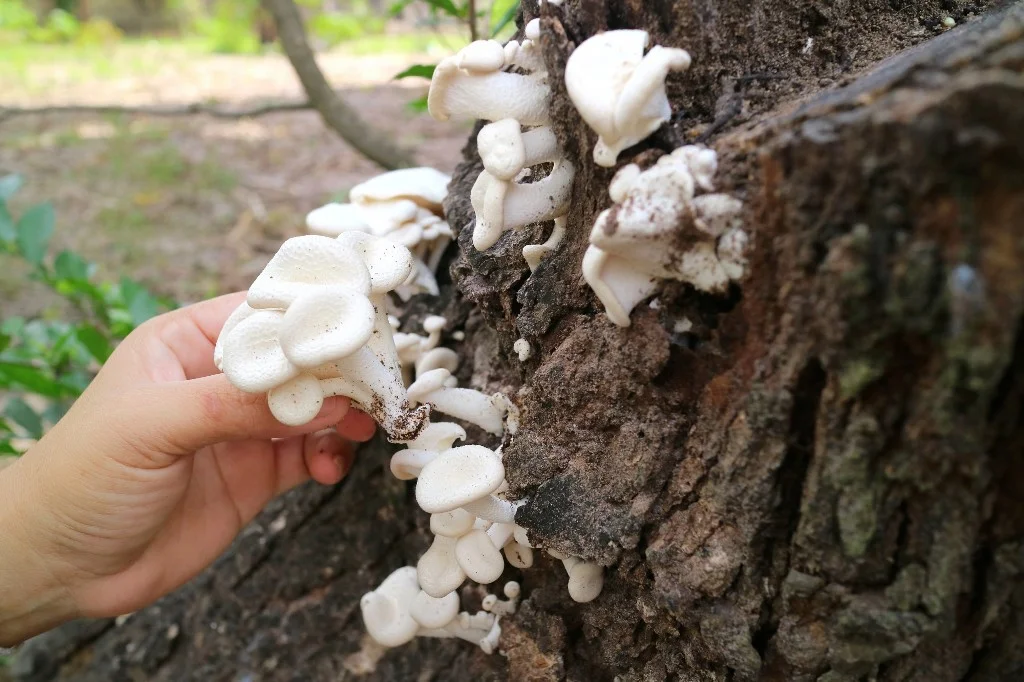Tonsillitis is a painful inflammation of the tonsils that can affect people of all ages. It can cause discomfort and difficulty in swallowing, among other symptoms. While medical treatment may be necessary in some cases, there are also natural remedies that can help alleviate symptoms and promote healing. In this article, we will explore some home remedies for tonsillitis that have been found to be effective according to scientific research.
These remedies are simple, quick, effective, and can be done with ingredients that you may already have in your kitchen.
Understanding tonsillitis: Symptom and causes
Before we dive into the home remedies for tonsillitis pain, let’s first understand about this condition.
Tonsillitis is a condition that happens when the tonsils, which are two small glands located in the back of your throat, become inflamed due to an infection caused by bacteria or a virus (1). It is a common condition, especially in children and teenagers (2).
There are some causes and symptoms of tonsillitis, which are defined below.
Causes of Tonsillitis
The condition can be caused by several factors, including: (3, 4, 5)
- Viral Infections: The most common cause of tonsillitis is a viral infection, such as the common cold or flu.
- Bacterial Infections: Tonsillitis can also be caused by bacterial infections, such as strep throat, which is caused by the streptococcus bacteria.
- Fungal Infections: In rare cases, tonsillitis can be caused by a fungal infection, such as candida.
- Allergies: Allergies to pollen, dust, or pet dander can also cause inflammation of the tonsils.
- Smoking: Smoking or exposure to second-hand smoke can irritate the throat and lead to tonsillitis.
- Weakened Immune System: People with weakened immune systems, such as those with HIV/AIDS or undergoing chemotherapy, are more susceptible to tonsillitis.
Symptoms of Tonsillitis
The symptoms of tonsillitis can vary depending on the cause and severity of the inflammation, but may include: (6, 7)
- Sore Throat: One of the most common symptoms of tonsillitis is a sore throat, which can be mild to severe.
- Difficulty Swallowing: Tonsillitis can make it difficult and painful to swallow food or liquids.
- Swollen Tonsils: The tonsils can become red, swollen, and inflamed, and may have white or yellow spots on them.
- Fever: Tonsillitis can cause a fever, usually above 101 degrees Fahrenheit.
- Headache: Many people with tonsillitis experience headaches, which can range from mild to severe.
- Ear Pain: Tonsillitis can cause pain in the ears, especially when swallowing.
- Fatigue: Tonsillitis can cause fatigue and general weakness.
- Bad Breath: Tonsillitis can cause bad breath due to the presence of bacteria or other pathogens.
It’s important to treat tonsillitis in the early stages because if it’s left untreated, it can lead to complications such as the infection spreading to other parts of the body.
8 Simple and Fast Natural Remedies for Tonsillitis Pain

If you are experiencing symptoms of tonsillitis, there are several home remedies for tonsillitis that you can try to alleviate the discomfort.
These remedies include saltwater gargle, herbal teas, essential oils, garlic, turmeric, and more. Let’s now discuss these remedies in detail.
Saltwater Gargle: The Classic Cure for tonsillitis

Saltwater gargle is one of the oldest and most popular natural remedies for tonsillitis. This simple but effective solution can help reduce inflammation, kill bacteria, and loosen mucus in the throat.
The salt in the water helps draw out excess fluids from the inflamed tissues, which reduces swelling and pain.
A research study published in NCBI suggests that gargling with warm saltwater may have the potential to eliminate the virus in the throat caused by SARS-CoV-2. (8)
This study indicates that the virus is more sensitive to saltwater than to other substances, and gargling may help to reduce the viral load in the throat, potentially preventing the spread of the virus to other people.
Gargling with saltwater also helps flush out mucus and other debris from the tonsils and throat, which can further reduce inflammation and promote healing. Additionally, saltwater creates an alkaline environment in the throat, which can make it difficult for bacteria and viruses to survive.
How to Make Saltwater solution?
To prepare a saltwater gargle, mix one teaspoon of salt with eight ounces of warm water. Stir until the salt dissolves, then gargle the solution for 30 seconds, spit it out, and repeat as needed. You can also add honey or lemon to the gargle for additional soothing and antibacterial benefits.
Side effect
Gargling with salt water too frequently or using too much salt can irritate the throat and cause dryness, which can make the pain worse. Additionally, some people may experience a burning sensation or discomfort when gargling with salt water.
Drink Warm Water for tonsillitis

Drinking warm liquids, including honey and lemon, can help soothe a sore throat and naturally provide fast relief from tonsillitis pain.
The warm water helps to increase blood flow to the area, which can reduce inflammation and and irritation in the throat, while honey and lemon have natural anti-microbial properties that can help fight off infection (9–10). It’s important to avoid hot liquids, as they can further irritate the throat.
How to make warm water
To make warm water with honey and lemon for tonsillitis pain relief, follow these steps:
- Heat water in a kettle or on the stove until it is hot but not boiling.
- Pour the hot water into a cup or mug.
- Add one to two teaspoons of honey to the hot water. Honey can help soothe the throat and has antibacterial properties that may help fight infection.
- Squeeze the juice of half a lemon into the cup. Lemon juice is a good source of vitamin C, which can help boost the immune system.
- Stir the mixture until the honey has dissolved.
- Wait for the mixture to cool slightly so it is warm but not too hot to drink.
-
Take small sips of the warm water with honey and lemon to help soothe your sore throat.
Side effect
Some people may be allergic to honey or lemon, which can cause an allergic reaction and worsen tonsillitis symptoms. Additionally, consuming too much honey can cause diarrhea or upset stomach.
Herbal Teas for tonsillitis remedy

Drinking herbal teas can be a simple and effective home remedy for tonsillitis pain. They can help alleviate symptoms and support the body’s natural healing processes.
One study published in NCBI in 2011 found that chamomile tea had antibacterial properties and may be effective in reducing symptoms of pharyngitis; a condition in which the back of the throat becomes inflamed due to infection or irritation (11)
Herbal teas contain substances that have anti-inflammatory, antibacterial, and immune-boosting properties, which can help soothe the throat, reduce pain and swelling, and promote overall healing and quick recovery.
Types of herbal teas
Some of the best herbal remedies for tonsillitis include:
- Chamomile: This gentle herb can help calm inflammation and promote relaxation, which may be helpful if tonsillitis is causing anxiety or insomnia.
- Echinacea: This popular herb has been shown to stimulate the immune system and fight off infections, making it a useful ally against tonsillitis.
- Ginger: This spicy root contains compounds that can reduce pain, swelling, and fever, as well as improve digestion and circulation.
How to make herbs tea
To prepare a herbal tea, steep one teaspoon of dried herb or one tea bag in one cup of hot water for five to ten minutes, then strain and drink while it’s still warm. You can also mix and match different herbs to create your own blends and experiment with flavors and benefits.
Side effect
Some people may be allergic to certain herbs, which can cause an allergic reaction and worsen tonsillitis symptoms.
Additionally, some herbs may interact with medications or medical conditions, so it is important to talk to your doctor before using herbal teas as a home remedy.
Essential Oils: Aromatherapy for Tonsils treatment

If you enjoy aromatherapy, essential oils can be used as a natural way to treat tonsillitis at home.
Essential oils have natural properties that make them useful for tonsillitis, including antibacterial, anti-inflammatory, and soothing effects.
These properties can help fight off the infection causing tonsillitis, reduce inflammation in the throat, and provide fast relief from symptoms such as sore throat and difficulty swallowing.
One study published in NCBI in 2021 found that essential oils, including tea tree oil and peppermint oil, were effective in reducing inflammation and pain associated with tonsillitis. (12, 13)
Types of herbal essential oils
Some of the best essential oils for tonsillitis pain relief include:
- Tea tree Oil: This powerful oil has antiviral, antibacterial, and antifungal properties, which can help kill germs and prevent infections.
- Peppermint Oil: This cooling oil can help relieve pain, reduce inflammation, and clear congestion, making it a refreshing choice for tonsillitis.
How to use
To use essential oils for tonsillitis, you can add a few drops to a diffuser or humidifier, inhale directly from the bottle, or dilute with a carrier oil and apply to the skin or throat.
Be sure to choose high-quality, pure essential oils and follow the recommended dosages and precautions.
Side effect
Some possible side effects of essential oils include allergic reactions, respiratory issues, and interactions with medications. Additionally, some essential oils can be toxic if ingested or used improperly.
When using essential oils for tonsillitis, it’s important to dilute them properly and apply them topically or through inhalation only. Avoid ingesting essential oils unless directed by a qualified healthcare professional.
Garlic
Garlic can serve as a natural remedy for tonsillitis by reducing inflammation and fighting infection. It contains antibiotic that can help fight off the infection that causes tonsillitis. It also has anti-inflammatory properties that can reduce swelling and pain.
One study published in NCBI in 2019 found that garlic was effective in inhibiting the growth of bacteria associated with tonsillitis. (14)
How to use
To use garlic as a remedy for tonsillitis, crush a few garlic cloves and mix them with honey. Eat this mixture several times a day to relieve the symptoms of tonsillitis.
Side effect
If you consume excessive amounts of garlic, one of the most common side effects is gastrointestinal discomfort, which may include symptoms such as nausea, bloating, and gas.
Turmeric Milk for tonsillitis

Turmeric is another natural remedy for tonsillitis that can help relieve its symptoms. It has anti-inflammatory and antibacterial properties that can help reduce swelling and fight off infection.
While there is limited scientific research on the effectiveness of turmeric milk for tonsillitis specifically, some studies suggest that turmeric may have potential benefits for other inflammatory conditions. For example –
A study published in NCBI in 2022 found that turmeric was effective in reducing inflammation and pain associated with tonsillitis. (15)
How to use
Here’s how to make turmeric milk at home:
Ingredients:
- 1 cup of milk (dairy or non-dairy)
- 1 teaspoon of turmeric powder
- 1 teaspoon of honey (optional)
- 1/2 teaspoon of cinnamon powder (optional)
Instructions:
- Heat the milk in a small saucepan on low to medium heat.
- Add the turmeric powder and stir until the mixture is well combined.
- If desired, add honey and cinnamon powder for additional flavor and health benefits.
- Continue to heat the mixture until it is warm, but not boiling.
- Pour the turmeric milk into a mug and drink it while it’s still warm.
Side effect
If you consume excessive amounts of turmeric, one of the most common side effects is gastrointestinal discomfort, which may include symptoms such as nausea and diarrhea.
Marshmallow Root for tonsillitis

Marshmallow root is a natural solutions for tonsillitis that can help soothe and coat the throat, reducing inflammation and pain in tonsils. However, there is limited scientific research on the effectiveness of marshmallow root for treating tonsillitis.
Some studies suggest that marshmallow root may have anti-inflammatory and soothing properties that could help alleviate symptoms of tonsillitis, such as pain and inflammation. However, more studies are needed to confirm its effectiveness. (16)
How to use
Here are some ways to use marshmallow root for tonsillitis:
- Marshmallow root tea: Add 1-2 teaspoons of dried marshmallow root to a cup of hot water and let it steep for 5-10 minutes. Strain out the root and drink the tea while it’s still warm. Marshmallow root tea can help soothe the throat and reduce inflammation.
- Marshmallow root gargle: Add 1-2 teaspoons of dried marshmallow root to a cup of hot water and let it steep for 5-10 minutes. Strain out the root and use the warm liquid as a gargle. Gargling with marshmallow root can help reduce inflammation and provide relief from sore throat.
-
Marshmallow root capsules or tincture: Marshmallow root is also available in capsule or tincture form, which can be taken orally. Follow the instructions on the label or consult with a healthcare professional for guidance on dosage.
Side effect
One of the most common side effects of marshmallow root is gastrointestinal distress, such as bloating, gas, and diarrhea.
Marshmallow root may also interact with certain medications, so it’s important to talk to your healthcare provider before using marshmallow root if you’re taking any prescription drugs.
Slippery elm for tonsillitis
Slippery elm is a commonly used herbal remedy for tonsillitis that can help soothe the throat and reduce inflammation. Slippery elm contains mucilage, which is a substance that becomes gel-like when mixed with water. This gel-like substance coats the throat and helps to soothe irritation, reduce inflammation, and relieve pain due to tonsil infection.
Some studies suggest that slippery elm may help reduce symptoms such as sore throat and coughing. However, there is limited scientific research on the effectiveness of slippery elm for treating tonsillitis. Therefore, more studies are needed to confirm its effectiveness. (17, 18)
To use slippery elm for tonsillitis pain relief, you can try the following methods at home
- Slippery Elm Tea: Boil water and add slippery elm bark powder to it. Stir well and let it steep for a few minutes. Strain and drink the tea while it’s still warm. You can also add honey or lemon for taste.
- Slippery Elm Lozenges: You can purchase slippery elm lozenges from a health food store or online. These lozenges can help to soothe your throat and provide relief from pain.
-
Slippery Elm Powder: Mix slippery elm powder with water to create a paste. Apply the paste directly to your tonsils for relief from pain and inflammation.
Side effect
Slippery elm is generally considered safe when taken in recommended doses. However, some people may experience side effects such as:
- Nausea
- Upset stomach
- Diarrhea
- Allergic reaction
If you experience any of these side effects, stop using slippery elm and speak with your doctor. Additionally, slippery elm may interact with certain medications, so it’s important to speak with your doctor before using it as a treatment for tonsillitis or any other condition.
Learn more: Quick and Easy Home Remedies for Fever Relief: Break a Fever Naturally
Lifestyle Changes for Tonsillitis

There are also several alternative treatments that can provide natural relief from tonsillitis symptoms. Here are some alternative treatments you can try:
- Use Humidifier: A humidifier can help to soothe a sore throat by adding moisture to the air. This can help to reduce inflammation and irritation.
- Rest and hydration: Getting plenty of rest and staying hydrated can help your body fight off the infection and reduce inflammation. Drink plenty of water, herbal teas, and broths to stay hydrated.
- Avoiding irritants: Avoiding irritants such as cigarette smoke, pollution, and dry air can help to reduce inflammation and irritation in your throat. Additionally, try to avoid spicy or acidic foods that can further irritate your throat.
- Avoid Crunchy Foods: It is recommended to avoid crunchy foods as they can irritate your throat and make swallowing painful. Hard or crispy foods like nuts, chips, and popcorn can scratch or further inflame the tonsils, leading to more discomfort and a longer recovery time.
-
Take Zinc tablet: Zinc tablet may be helpful in reducing symptoms of tonsillitis. Some research has shown that zinc can help reduce the duration and severity of colds, throat infections, and other respiratory infections.
-
Eat Soft Foods: Eat soft, soothing foods such as soups, broths, and mashed potatoes to reduce discomfort while swallowing.
-
Practice Good Oral Hygiene: Brush your teeth regularly, use mouthwash, and gargle with salt water to prevent the spread of infection and promote healing.
Prevention Tips for Tonsillitis
Prevention of tonsillitis involves taking steps to avoid the infection in the first place. Here are some tips to help prevent tonsillitis:
- Practice good hygiene: Wash your hands frequently and avoid close contact with people who are sick to reduce your risk of getting infected.
- Avoid sharing personal items: Do not share utensils, drinking glasses, or other personal items with others.
- Boost your immune system: A healthy immune system can help fight off infections. Get enough sleep, exercise regularly, and eat a healthy diet to keep your immune system strong.
- Quit smoking: Smoking can weaken your immune system and increase your risk of infections, including tonsillitis.
- Stay away from irritants: Avoid exposure to irritants such as cigarette smoke, air pollution, and other environmental factors that can irritate your throat.
By following these prevention tips, you can reduce your risk of getting tonsillitis and other infections. If you do develop tonsillitis, it is important to seek medical attention to get the proper treatment.
Read more- How to Stop Cough at Night: 12 Best Home Remedies
Read more- 10 Natural Ways to Get Rid of Red Eyes Without Eye Drops
When to Seek Medical Attention
While home remedies can be effective in treating tonsillitis, there are certain situations in which it’s important to seek medical attention. These situations include:
- Signs of a bacterial infection: If you have a fever, swollen lymph nodes in your neck, and white spots on your tonsils, you may have a bacterial infection that requires antibiotics. In this case, it’s important to see a doctor to get the appropriate treatment.
- Recurrent tonsillitis: If you have tonsillitis that keeps coming back, it may be a sign of an underlying condition that requires medical attention. Your doctor can help determine the underlying cause and provide treatment options.
- Complications of tonsillitis: In rare cases, tonsillitis can lead to complications such as abscesses, difficulty breathing, and rheumatic fever. If you experience any of these complications, seek medical attention immediately.
It’s important to note that if your symptoms are severe, if you have difficulty breathing, or if you have any concerns about your condition, you should seek medical attention right away.
Conclusion
Tonsillitis pain can be uncomfortable and disruptive, but there are several natural remedies that can help alleviate your symptoms and promote healing.
Saltwater gargle, drinking warm liquids, herbal teas, essential oils, garlic, turmeric, marshmallow root, and slippery elm are easy and effective home remedies for tonsillitis patients. In addition, getting proper rest, staying hydrated, using a humidifier, and taking zinc lozenges can boost your immunity by helping your body fight off infections.
However, it is important to note that tonsillitis can be caused by bacterial or viral infections, and in some cases, antibiotics or antiviral medications may be necessary to treat the condition effectively. It is always best to consult a healthcare professional for an accurate diagnosis and appropriate treatment plan.
FAQ
Q: What are some home remedies for tonsillitis pain?
A: There are several home remedies that can help relieve tonsillitis pain, including gargling with warm salt water, drinking warm liquids, using a humidifier, eating soft foods, and getting plenty of rest
Q: How does gargling with salt water help with tonsillitis pain?
A: Gargling with warm salt water can help reduce inflammation and kill bacteria in your throat, which can help relieve pain and other symptoms of tonsillitis.
Q: Can honey help with tonsillitis pain?
A: Yes, honey has natural antibacterial properties and can help soothe a sore throat. Drinking warm tea with honey or adding honey to warm water and lemon can help alleviate tonsillitis pain.
Q: Are there any foods I should avoid when I have tonsillitis?
A: Yes, you should avoid spicy or acidic foods that can irritate your throat. You should also avoid hard or crunchy foods that can be difficult to swallow.
Q: How long does it take for tonsillitis to go away?
A: Tonsillitis can last anywhere from a few days to a week or more, depending on the severity of the infection. Home remedies can help alleviate symptoms, but if your condition doesn’t improve or if you have difficulty breathing, you should see a doctor.
Q: Can tonsillitis be prevented?
A: Tonsillitis can be caused by a variety of factors, including viral and bacterial infections. Practicing good hygiene, such as washing your hands regularly and avoiding close contact with people who are sick, can help prevent the spread of infections that can lead to tonsillitis.
Q: Can I still go to work or school if I have tonsillitis?
A: It’s best to stay home and rest if you have tonsillitis. You may be contagious and could spread the infection to others, so it’s important to avoid contact with others until your symptoms improve.
Disclaimer : The above information is given purely from educational point of view. This information should not be used for diagnosis or treatment of any disease without professional medical advice. Apart from this, before adding or removing anything in your diet, please consult a qualified doctor or dietitian. If you think you may have a medical emergency, immediately call your doctor.

